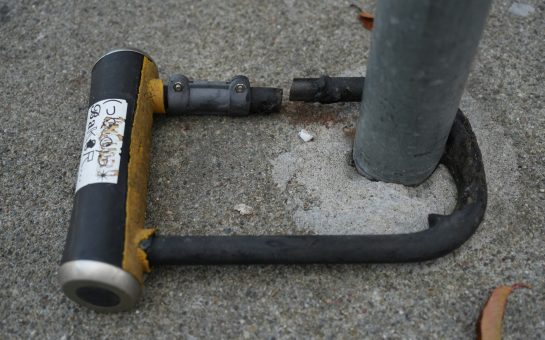Jamie Sanderson was stabbed to death in the club last year.

Beer and sausages make, in my opinion, a perfect combination. The residents of Mill Street, Kingston-upon-Thames, think so too.
On July 20 the people who call this road in a leafy part of South West London home will hold their first beer and sausage festival.
Summer signals this sort of event and Mill Street thrives on it. They have their own version of Glastonbury – Millfest – in September and there’s even the Millympics.
Yet this image of suburban bliss has been shattered by Kingston Council’s decision to reopen the nearby Oceana nightclub.
The student hotspot shot to prominence last October when 20-year-old Jamie Sanderson was stabbed to death there.
The 2,000-capacity venue, popular for its cheap student nights, was deemed by the Met Police to have a culture of criminality and its licence was revoked.
But months of co-operation between the council, police, local residents and the club’s operator mean it can now reopen its doors – and Mill Street locals are furious.
“The majority of Mill Street residents wanted the licence to be revoked permanently and were disgusted that it was not,” said Tessa Kind, Chair of the Mill Street Residents Association (MSRA).
Considering what some residents have witnessed, it’s unsurprising they want the club to remain shut – although they concede not all incidents result from drinking at Oceana.
“We have frequently found people urinating in our garden or porch in the early hours of the morning and once found a man asleep there,” said Amanda Shaw, of Mill Street.
“Some also choose to defecate in the street. Indeed last year it was a regular occurrence,” she added.
“But the most disruption is caused by the screaming, shouting, vile language and anti-social behaviour two or three nights a week from 11pm onwards.”
Ms Shaw is one of many people who complete an online log of disturbances which is submitted to the police and Kingston Council.
It is because of this close relationship between the residents and their local authority that they were left so devastated by the decision reached at South Western Magistrates’ Court.
Legal representatives from the council, the Met and the club’s owners, Luminar Group, cut a deal which was approved by magistrates, but the full conditions were not read out in court.
“We felt let down by the council and that the whole consultative charade ended in a duplicitous settlement,” said Mrs Kind.
“Many residents feel bitter that we have not only wasted so much of our time but that our elected councillors have ignored and not represented our views.”
Oceana Kingston will uphold a set of 17 new licence conditions, which include the use of metal detectors and changes to the nights it will open, all imposed by the council.
The club will also pay for four wardens to patrol the streets when the venue is open and this will rise to six when there are 1,000 people inside.
A reduction in crime at Oceana since the council’s earlier decision to revoke the licence influenced the agreement – but no meeting over the plans was held in public.
Still, Councillor Liz Green, Leader of Kingston Council, said: “We believe that the lengthy legal process and negotiations with the operator have secured conditions which benefit the public.
“Now we need to monitor the new conditions to make sure that Oceana complies with them. Council officers will ensure that appropriate action is taken in accordance with the council’s enforcement policy if complaints are received.”
But MSRA are absolutely convinced that the new measures will not be upheld.
“The management of Oceana has never adhered to legal or moral imperatives,” said Mrs Kind.
“The council has already stated that they will rely on residents’ complaints to monitor the situation but details of the frequency and timing of late licences have been completely ignored.”
However, Chief Inspector Gary Taylor of the Metropolitan Police, Kingston-upon-Thames, believed the work done with Oceana over the past two years will not go to waste.
He said: “Kingston Police will continue to work with all venues in Kingston to promote the licensing objectives and ensure strict compliance.
“Oceana have seen significant crime reduction over the past six months and I am positive that this will continue.”
Chief executive of The Luminar Group, Peter Marks, also insisted that the club has listened to residents’ concerns, despite locals having no influence on the final agreement.
“We are pleased with the decision, which recognises the efforts we have made to respond to local residents’ concerns and further enhance safety and security at the club,” he said.
But fears over Oceana are not limited to Mill Street. Misha Monaghan, 22, a student from Surrey, revealed what she thought of the nightclub.
“The club is a black mark on the area. Walking through the town on a weekend night borders on traumatic,” she said.
There’s even a ‘Shut down Oceana Kingston’ Facebook page with nearly 2,500 ‘likes’.
Not all share this view though. Keval Patel, 25, a former student at Middlesex University, said he had many great nights at Oceana.
He said: “I spent most Thursday nights there during my first year. They were always awesome. Kingston Oceana was the place to be in London.”
Alex Mohair, also 25, echoed these sentiments, saying the quality music made it a must-go place for students.
“Most of my fondest memories of uni life were at Oceana Kingston. It was amazing having live performances from great artists and it attracted students from all over London.”
Current students may welcome the return of the popular nightspot, no doubt the scene of some unforgettable nights, but it is the Kingston residents who are left with the hangover.
Photo courtesy of wwphotos, with thanks.
Follow us @SW_Londoner




